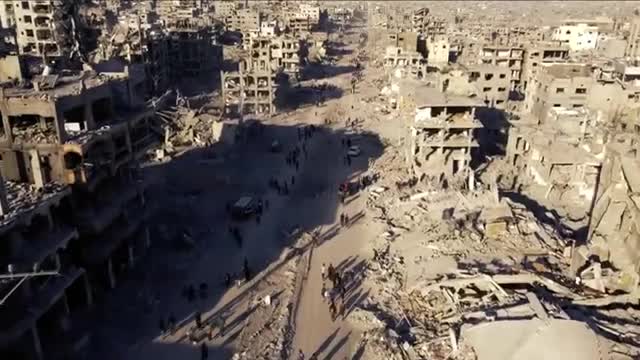Mine-action team in Gaza warns of widespread unexploded ordinance, urges surge in equipment and funding
Get AI-powered insights, summaries, and transcripts
Subscribe
Summary
Speakers in a mine-action briefing said unexploded ordnance (UXO) from two years of conflict is widespread in Gaza. A team identified in the transcript as "MASA" described explosive hazard assessments requested by UNDP, ongoing convoy-survey missions, and urgent needs for disposal equipment, coordination, and sustained funding.
A mine-action representative identified in the transcript as "MASA" said two years of conflict in Gaza have left many explosive items scattered across populated areas and that warring parties continue to use explosive weapons, creating widespread unexploded ordnance hazards.
"What we have in Gaza, obviously, with 2 years of conflict is that a lot of ordinances are lying around all warring parties using explosive weapons against one another," Speaker 1 said, describing weapons that often "do not function as designed" and may not detonate, leaving dangerous unexploded ordnance.
The briefing said explosive hazard assessments (EHAs) are essential before humanitarian actors can use damaged infrastructure. "We've been requested to conduct an explosive hazard assessment or EHA by UNDP on a water well which has been damaged," Speaker 2 said, adding that until an EHA is completed on site other humanitarian organisations "can't use them because they're not safe." The transcript identifies UNDP as the requesting agency.
Speakers described two main operational streams: surveying and clearing suspected hazards ahead of humanitarian convoys, and community-focused explosive ordnance risk education (EORE). "We'll sit at the front surveying the road, making sure that there are no suspect items of the UXO or any other explosive hazards," Speaker 2 said. Speaker 1 added that EORE is "completely community facing, and it's educating people about the risk of explosive ordinance."
Both speakers highlighted capacity shortfalls. The briefing said the single biggest challenge is a lack of equipment and sector capacity to dispose of hazardous items safely. "So right now, we mark, we warn everyone where it is, and we just follow-up with explosive ordinance risk education," Speaker 1 said, describing a stopgap approach until disposal assets are available.
To address those gaps, the transcript says the organization identified as MASA is acting as a coordinating body to prioritize tasks and target limited resources. "They need to be efficient and they need to be maximum impact with the resources we have. And therefore, our MAS steps up in the coordinating body to ensure we get that efficiency and that correct targeting," Speaker 1 said.
Speakers urged sustained funding and a surge in capacity during the ceasefire period so clearance, assessment and education activities can scale. "Sustained funding for this work is important to allow continuity and to grow at scale and to sustain that energy and effort because it's a long process," Speaker 1 said, adding communities "will continue to be need to be warned and to be educated."
The briefing did not record named individuals or formal decisions; it presented operational claims, immediate needs, and the UNDP request for an EHA on a water well. The transcript uses the label "MASA" for the mine-action coordination body; the article reports that label as given in the transcript and notes UNDP as the requesting agency. The session did not include votes or motions and closed with a call for equipment, funding and coordination to scale up mine-action efforts during the current ceasefire period.
